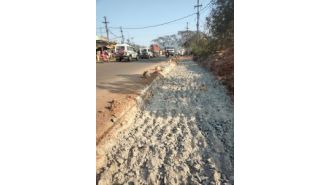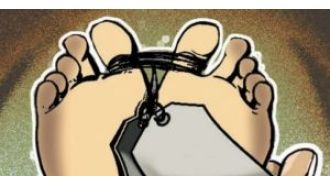This global group has millions of members who are dedicated to completing a 5K, with no one finishing last.
It's not about running, it's about making a positive impact on people's lives.

On a typical Saturday morning in the UK, thousands of people eagerly prepare for their weekly dose of feelgood. They lace up their trainers, fill their water bottles, and head out the door with excitement and determination. It's not a race, but rather a community event that brings people together and boosts their spirits.
If you've never heard of parkrun, you must have been living under a rock for the past 20 years. But for those in the know, parkrun is a free, 5k event that takes place every week in over 2,300 locations across 22 countries. Participants can walk, jog, run, volunteer, or simply spectate. And the best part? There's no time limit and no one finishes last. With nine million registered parkrunners, it's safe to say that this event is a pretty big deal.
For Kayode and Enomwoyi Damali, their parkrun ritual starts on Friday night as they opt for a hearty vegan meal instead of going to the pub. This ensures they have enough energy for their 5k the next day. The mother-and-son duo from Lewisham, south London, have been attending parkrun together for years. Kayode had to persuade Enomwoyi to join him, but she finally gave in and became hooked. Rain or shine, they never miss a week.
After their first run, Enomwoyi was immediately bitten by the parkrun bug. She loves the atmosphere, the park setting, and the fact that she's representing older women. Kayode, a speaker, presenter, and former Apprentice candidate, enjoys chatting with fellow runners over coffee or hot chocolate after their run. It's a great way to connect with the community and make new friends.
On milestone days, when runners reach their 25th, 50th, or 100th run, they bring and share cake as a way to celebrate their achievements. This has become a tradition for many parkrunners across the nation. And let's not forget the shout-outs from the run director and the supportive cheers and claps from fellow participants.
If you're ready to join in on the fun, all you have to do is register for free on the parkrun website. You can walk, jog, run, volunteer, or spectate - whatever makes you feel good. Enomwoyi recently achieved a personal best despite running in terrible conditions. She was shocked and elated to see her name in red on the results board. It's a great feeling to know that you've excelled and pushed yourself to your own standards.
Enomwoyi and Kayode are now on their 64th parkrun and hope to reach 100 by the end of the year. But they're not the only ones gearing up for a milestone - parkrun itself turns 20 this year. The event was founded in 2004 by Paul Sinton-Hewitt, who was looking for a way to cope with injuries that prevented him from running marathons. The first parkrun, attended by just 13 runners and five volunteers, took place in London's Bushy Park on a warm day in October. But word spread quickly, and parkrun's popularity grew.
Paul realized that parkrun was more than just a running event - it was about building a community and helping people change their lives. It's a place where everyone can find their own place and feel welcomed and supported. As a charity focused on health and wellbeing, this is the most important thing parkrun can do. It's an outdoor social occasion where people can meet friends, make new ones, and renew their spirits.
This warm and welcoming atmosphere has attracted parkrunners of all ages, including 100-year-old Colin Thorne from New Zealand, who completed his 100th parkrun two years ago. Families also love participating in parkrun, like the Goodfellows from Belfast, who attend the junior parkrun every Sunday. Derek and Victoria's daughter, Katie-Louise, was born with cerebral palsy and dystonia, but that doesn't stop them from taking part. Derek, who loves running, pushes Katie-Louise in her wheelchair around the 2k route, while their younger son Dawson joins in on the fun.
Caring for a child with special needs can be isolating, but parkrun has become a lifeline for the Goodfellows. It's a chance for them to socialize and feel like a part of a community. Derek proudly shares that people often ask him why he's pushing Katie-Louise if she doesn't enjoy it. But he knows that she loves it because she gets so excited and happy during the run. It's a way for her to feel included and have fun, just like any other child.
Last year, the parkrun community raised money to buy a three-wheeled buggy for Katie-Louise, which will help her and her dad reach even greater speeds. The family has set a goal to complete all 18 junior parkruns in Northern Ireland and document their journey on Facebook. They hope to spread awareness about the inclusivity and accessibility of parkruns and inspire others to challenge themselves.
For founder Paul, parkrun has also been transformational. He has struggled with his mental health for most of his life and was going through a difficult time after his divorce in 1995. But starting parkrun helped him find purpose and support. It's not just about running - it's about building a community and making a positive impact in people's lives. This year, as parkrun celebrates its 20th birthday, Metro is proud to be their first official media partner. We believe in the power of parkrun to help people thrive and live their best lives. So lace up your trainers and join us for some feelgood fun at your nearest parkrun. See you there!
On a typical Saturday morning in the UK, the streets are alive with the sound of excitement and anticipation as hundreds of thousands of people get ready for their weekly dose of feelgood. It's not a race, but a community event that brings people together in a shared love for movement and well-being.
For those who may not have heard of it, parkrun is a free, 5k event that takes place every week in over 2,300 locations across 22 countries. It's open to everyone, with no time limit and no pressure to finish first. With nine million people now registered, parkrun has become a global phenomenon.
For Kayode and Enomwoyi Damali, their parkrun ritual starts on Friday night when they opt for a hearty vegan meal instead of a night out at the pub. They know they need all the energy they can get for their weekly 5k run. The mother-and-son duo from Lewisham, south London, have been attending parkrun together since September 2022. Enomwoyi, now 60, was convinced by her son to give it a go after years of persuasion. And she hasn't looked back since.
After their first run, they were both hooked. Rain, shine, or strong winds, they make sure to show up every week. It has become a beloved part of their Saturday mornings, giving them a serotonin boost and a sense of accomplishment. But it's not just about the run. Afterwards, they take the time to chat with other participants over coffee or hot chocolate, creating a tight-knit community.
On milestone days, when runners reach their 25th, 50th, or 100th run, they bring and share cake, a tradition that has become a ritual for many parkrunners. It's a celebration of personal achievements and a supportive environment where everyone cheers and claps for each other.
Enomwoyi recently achieved a personal best despite running in terrible conditions. She recalls the shock and elation she felt when she saw her name in red next to her time. It's this sense of personal accomplishment that keeps her coming back week after week. And she's not the only one. This year, parkrun turns 20, and Enomwoyi and Kayode have no plans of stopping their weekly runs. They aim to reach 100 runs by the end of the year.
But parkrun is more than just a running event. It's a lifeline for many individuals and families, like the Goodfellows from Belfast. They attend junior parkrun, a 2k event for 4-14 year olds and their families, every Sunday morning. Derek, the father of eight-year-old Katie-Louise, who has cerebral palsy and dystonia, takes his daughter and four-year-old son Dawson to the parkrun every week.
Despite being in a wheelchair, Katie-Louise is an adrenaline junkie and gets visibly excited when her dad pushes her at full speed around the 2k route. Derek recalls the first time they participated in the event, and how he could see the pure joy on his daughter's face. But parkrun is not just about the physical activity for the Goodfellows. It's a chance for them to be a part of a community, to make friends and feel included.
For founder Paul Sinton-Hewitt, parkrun has been transformational in his own life. He started the event in 2004 as a way to cope with injuries that prevented him from running marathons. At that time, only 13 runners and five volunteers showed up for the first parkrun in London's Bushy Park. But as the word spread, so did its popularity. People were drawn to the event because it was accessible, free, and had a welcoming atmosphere.
Paul has always believed in the power of community and how it can change lives. He wanted parkrun to be a place where people could come together, make friends, and improve their mental and physical well-being. And that's exactly what it has become. For the past 20 years, parkrun has been providing a playground for people of all ages and abilities to come and participate in a fun, outdoor activity. It's a place where they can find their place and be a part of something bigger than themselves.
As parkrun celebrates its 20th birthday this year, we are proud to announce our partnership with Metro to bring you a new content series. In a coming together of two game-changing powerhouses, we are excited to have Metro as the first official media partner for parkrun. Join us as we continue to spread awareness about the inclusive and accessible nature of parkruns and the positive impact it has on individuals and communities around the world.
11 Views










